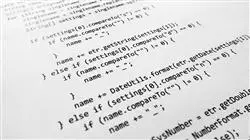University certificate
Accreditation/Membership
The world's largest faculty of information technology”
Introduction to the Program
Join now and start transforming complex ideas into tangible technological solutions that will impact the world”

Software quality guarantees that systems not only meet functional requirements, but are also intuitive, secure and sustainable in the long term. This is particularly relevant in critical sectors such as finance, healthcare and transportation, where failures can have serious consequences. Furthermore, prioritizing quality ensures that companies can adapt quickly to constant technological advances and respond effectively to growing market demands.
Through the use of methodologies such as agile development, DevOps and the implementation of international quality standards, software engineering guarantees the delivery of products in shorter times. Furthermore, controlled costs and a level of quality that minimizes critical errors have been expanded with the integration of emerging technologies, such as artificial intelligence, cloud computing and cybersecurity. In this context, the program designed by TECH is aimed at training professionals to be highly skilled in the design, development, management and quality assurance of software. In order to acquire the necessary skills, the Advanced master’s degree syllabus includes the most up-to-date concepts in technology project management and strategic management. This approach represents added value both for engineers who already hold positions of responsibility and wish to update their knowledge, and for those who aspire to lead teams and projects in this field for the first time.
One of the main benefits of this program is that it will be 100% online, eliminating the need for travel and specific schedules. One of the main benefits of this program is that it will be 100% online, so there is no need to travel or adapt to fixed schedules. This flexible approach is very useful, as it allows students to organize their daily obligations, whether professional or family, efficiently, thereby achieving comprehensive development.
With TECH, you will not only learn to develop software, but also to create systems that make a difference in the lives of people and companies”
This Advanced master’s degree in Software Engineering and Quality contains the most complete and up-to-date program on the market. The most important features include:
- Practical cases presented by experts in IT
- The graphic, schematic, and practical contents with which they are created, provide scientific and practical information on the disciplines that are essential for professional practice
- Practical exercises where self-assessment can be used to improve learning
- Special emphasis on innovative methodologies in Software Engineering and Quality
- Theoretical lessons, questions to the expert, debate forums on controversial topics, and individual reflection assignments
- Content that is accessible from any fixed or portable device with an Internet connection
Master the most advanced engineering skills and tools with the most innovative teaching methodology on the current educational market"
Its teaching staff includes professionals from the field of information technology, who bring to this program the experience of their work, as well as recognized specialists from leading companies and prestigious universities.
The multimedia content, developed with the latest educational technology, will provide the professional with situated and contextual learning, i.e., a simulated environment that will provide an immersive learning experience designed to prepare for real-life situations.
This program is designed around Problem-Based Learning, whereby the student must try to solve the different professional practice situations that arise throughout the program. For this purpose, the professional will be assisted by an innovative interactive video system created by renowned and experienced experts.
Raise your professional ambitions by learning 100% online, without compromising your personal and family responsibilities"

Become a professional engineering leader, ready to learn from anywhere in the world"
Why study at TECH?
TECH is the world’s largest online university. With an impressive catalog of more than 14,000 university programs available in 11 languages, it is positioned as a leader in employability, with a 99% job placement rate. In addition, it relies on an enormous faculty of more than 6,000 professors of the highest international renown.

Study at the world's largest online university and guarantee your professional success. The future starts at TECH”
The world’s best online university according to FORBES
The prestigious Forbes magazine, specialized in business and finance, has highlighted TECH as “the world's best online university” This is what they have recently stated in an article in their digital edition in which they echo the success story of this institution, “thanks to the academic offer it provides, the selection of its teaching staff, and an innovative learning method aimed at educating the professionals of the future”
A revolutionary study method, a cutting-edge faculty and a practical focus: the key to TECH's success.
The most complete study plans on the university scene
TECH offers the most complete study plans on the university scene, with syllabuses that cover fundamental concepts and, at the same time, the main scientific advances in their specific scientific areas. In addition, these programs are continuously being updated to guarantee students the academic vanguard and the most in-demand professional skills. In this way, the university's qualifications provide its graduates with a significant advantage to propel their careers to success.
TECH offers the most comprehensive and intensive study plans on the current university scene.
A world-class teaching staff
TECH's teaching staff is made up of more than 6,000 professors with the highest international recognition. Professors, researchers and top executives of multinational companies, including Isaiah Covington, performance coach of the Boston Celtics; Magda Romanska, principal investigator at Harvard MetaLAB; Ignacio Wistumba, chairman of the department of translational molecular pathology at MD Anderson Cancer Center; and D.W. Pine, creative director of TIME magazine, among others.
Internationally renowned experts, specialized in different branches of Health, Technology, Communication and Business, form part of the TECH faculty.
A unique learning method
TECH is the first university to use Relearning in all its programs. It is the best online learning methodology, accredited with international teaching quality certifications, provided by prestigious educational agencies. In addition, this disruptive educational model is complemented with the “Case Method”, thereby setting up a unique online teaching strategy. Innovative teaching resources are also implemented, including detailed videos, infographics and interactive summaries.
TECH combines Relearning and the Case Method in all its university programs to guarantee excellent theoretical and practical learning, studying whenever and wherever you want.
The world's largest online university
TECH is the world’s largest online university. We are the largest educational institution, with the best and widest online educational catalog, one hundred percent online and covering the vast majority of areas of knowledge. We offer a large selection of our own degrees and accredited online undergraduate and postgraduate degrees. In total, more than 14,000 university degrees, in eleven different languages, make us the largest educational largest in the world.
TECH has the world's most extensive catalog of academic and official programs, available in more than 11 languages.
Google Premier Partner
The American technology giant has awarded TECH the Google Google Premier Partner badge. This award, which is only available to 3% of the world's companies, highlights the efficient, flexible and tailored experience that this university provides to students. The recognition as a Google Premier Partner not only accredits the maximum rigor, performance and investment in TECH's digital infrastructures, but also places this university as one of the world's leading technology companies.
Google has positioned TECH in the top 3% of the world's most important technology companies by awarding it its Google Premier Partner badge.
The official online university of the NBA
TECH is the official online university of the NBA. Thanks to our agreement with the biggest league in basketball, we offer our students exclusive university programs, as well as a wide variety of educational resources focused on the business of the league and other areas of the sports industry. Each program is made up of a uniquely designed syllabus and features exceptional guest hosts: professionals with a distinguished sports background who will offer their expertise on the most relevant topics.
TECH has been selected by the NBA, the world's top basketball league, as its official online university.
The top-rated university by its students
Students have positioned TECH as the world's top-rated university on the main review websites, with a highest rating of 4.9 out of 5, obtained from more than 1,000 reviews. These results consolidate TECH as the benchmark university institution at an international level, reflecting the excellence and positive impact of its educational model.” reflecting the excellence and positive impact of its educational model.”
TECH is the world’s top-rated university by its students.
Leaders in employability
TECH has managed to become the leading university in employability. 99% of its students obtain jobs in the academic field they have studied, within one year of completing any of the university's programs. A similar number achieve immediate career enhancement. All this thanks to a study methodology that bases its effectiveness on the acquisition of practical skills, which are absolutely necessary for professional development.
99% of TECH graduates find a job within a year of completing their studies.
Advanced Master's Degree in Software Engineering and Quality
In the last decade, computer engineering has grown exponentially thanks to advances in technology and digital tools. This accelerated evolution has created a booming demand in the industry for specialists who perfectly handle everything related to software engineering, from the right tools for the design and implementation of systems, to the most effective security protocols to ensure inviolable access to your data. For this reason, at TECH Global University we have developed the Advanced Master's Degree in Software Engineering and Quality, a program intended to favor the specialization of IT professionals through the most complete and updated information in the sector. In this way, you will obtain a broad and highly qualified vision for the design and development of programs based on tests, with which you will ensure high-quality standards. Study this postgraduate degree and take a definitive step in your professional career.
Become a specialist in quality criteria for software engineering
If your goal is to become an expert in the area of software quality engineering, this postgraduate degree is for you. With the syllabus, you will delve into the most advanced criteria, tasks and methodologies for the proper development of an operating systems project. You will also analyze concepts such as technical debt, its causes and consequences, and the key factors of the quality of this set of programs: typology and models, specific features, influential elements, misconceptions, associated costs, among others. You will also learn how to measure and quantify software conditions and implement DevOps processes, as well as security systems to ensure their optimal state. This Advanced Master's Degree will give you everything you need to exceed your professional expectations.







